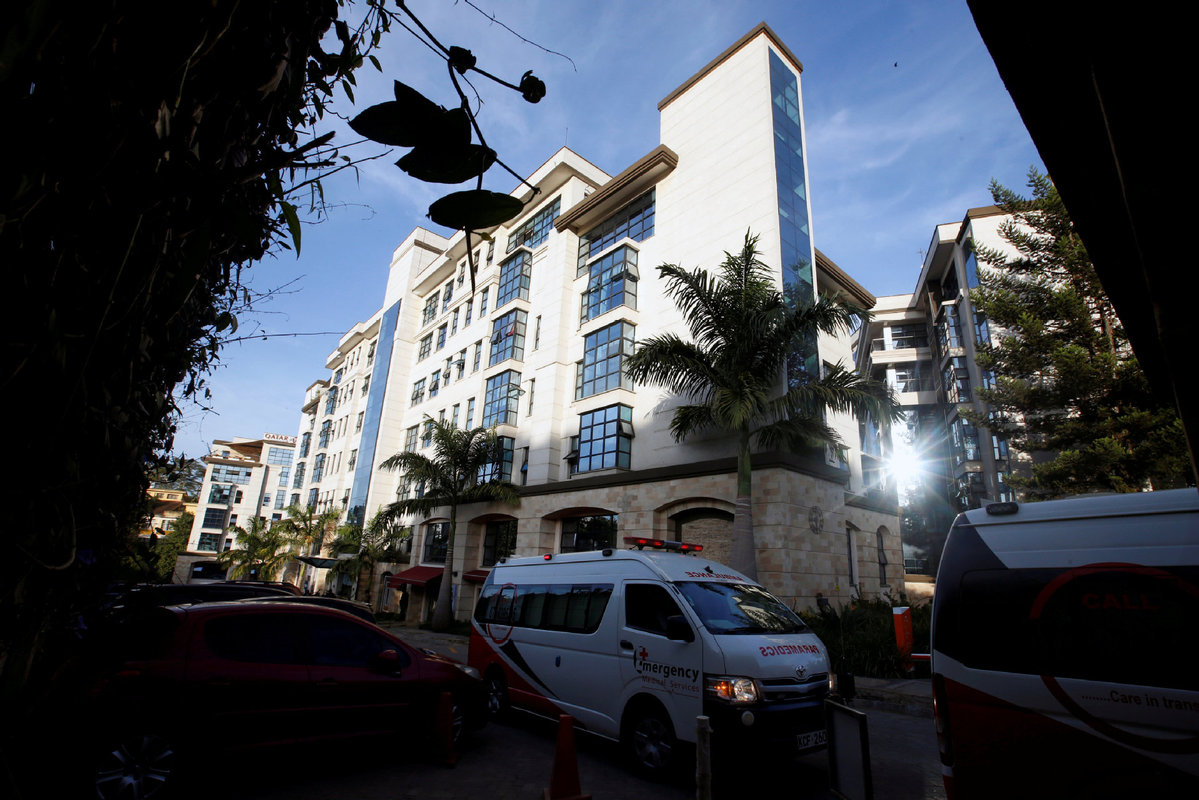Terror attack likely to hurt Kenyan economy
By LUCIE MORANGI | China Daily | Updated: 2019-01-18 09:26

Tourist numbers are expected to drop dramatically after 21 killed in attack
The death toll of the terror attack at an upscale commercial complex in Nairobi climbed to 21 and Kenya faces an immediate impact on tourism, according to an analyst
Kenyan authorities confirmed that six more bodies were recovered from the building while one policeman succumbed to his injuries in the hospital. Sixteen of the dead were Kenyans, one US citizen, one Briton and three of African descent with their nationalities yet to be identified. Twenty-eight others have been hospitalized.
The government also confirmed that five terrorist had been killed during the Tuesday attack that dragged into the early hours of Wednesday. Investigations now focus on the terrorists' accomplices as two key suspects believed to have been involved were arrested.
Meanwhile, al-Shabaab extremists have claimed responsibility for the attack on the building. In a statement released on twitter, the group said the attack was in retaliation for the US decision to move its embassy in Israel to Jerusalem.
The site of the attack was home to western companies as well as a hotel and restaurants frequented by expatriates working in the city. Three western embassies-Australia, the Netherlands and Germany-are in the neighborhood.
Al-Shabaab, which is based in neighboring Somalia and allied with al-Qaida, also carried out the 2013 attack at Nairobi's nearby Westgate Mall that killed 67 people, and an assault on Kenya's Garissa University in 2015 that claimed 147 lives, mostly students.
Anzetze Were, a consulting economist in Nairobi, said the attack will immediately be felt in the tourism sector-Kenya's second-largest source of foreign exchange revenue. "The sector performed well last year and was on a recovery path after the 2015 terror attack," she said.
The sector was forecast to grow at 16 percent in 2018 riding on new policies and better connectivity. Records show it accounted for $1.2 billion in 2017, a 20 percent jump from $989 million in 2016.
"Tourist numbers will be suppressed with cancellations done immediately," said Were whose friends from London have already postponed their visit to March.
She noted subsectors such as leisure and business tourism will be the first to record low numbers in addition to fewer conferences being held in the country. Foreign investments that had already been committed will slow down while new investors adopt a wait-and-see attitude.
"Government allocation toward security may be bumped up but this can only be done in a supplementary budget that has to be tabled in parliament in about three months time. If approved, development expenditure will be reduced," she said.
Kenyan authorities are looking into the lives of the attackers, who lived in the Nairobi suburbs. Furthermore, it has been revealed that one of the cars used during the attack, and laden with explosives, had a fake plate. A similar license number has been found on another car.
One of the attackers, identified only as Ali Salim, was recognized by a waiter. "I knew one of them because he had a big scar on one of his hands. They shot six of my friends. Four didn't die but two have succumbed to injuries," said the waiter quoted by a local media, Capital FM.
Reports by the Daily Nation also indicate that steel doors, bulletproof windows and password locked doors prevented the attackers from gaining access to offices and rooms in the business complex. This prevented more fatalities.
Two Chinese guests on a short business trip to Nairobi, hid in one of the hotel rooms. They heard gunshots while in their rooms at 3.27 pm. Only known by their surnames, Mao and Ji, they were immediately moved by the hotel staff from the third floor to a fourth floor room, where they hid with other guests.
"There were at least 14 people in the room. The room was very dark and no one dared to make any noise, as gun shots became louder outside. We could hear windows breaking nearby."
At 3:48 pm, Mao reached the Chinese embassy's emergency hotline, which kept them informed by using a quickly-created WeChat account until they were rescued.
The two, who are already back in China, narrated their ordeal by phone to CGTN TV in Kenya.
Associated Press contributed to this story.
























